Evolution of the Common Core
Evolution of the Common Core
This article is an abstract of Final Reflective Paper EDUC 570, 6/26/14, Sonoma State University
The purpose of schooling in the United States has taken many shapes since the American Revolution. Originally public schools were established to serve the public good and not necessarily individual desires. Thomas Jefferson saw public schooling as a way to find the best politicians while Horace Mann, often called the father of public schools, thought the purpose of schooling was to instill a common political creed, the value of voting, and moral instruction as a means of reducing crime (Spring, 2012).
In the 19th and early 20th centuries the “Traditionalist” held tight to a liberal arts curriculum that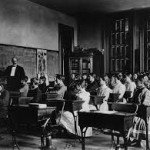 placed Latin, Greek, mathematics, and philosophy at its core. Since only about 3.5% of high-school students graduated the mass influx of immigration require a more universal, democratic approach to education. The progressive tradition grew out of this challenge as more educators sought to turn young Americans, especially new ones, into scholars, workers and citizens.
placed Latin, Greek, mathematics, and philosophy at its core. Since only about 3.5% of high-school students graduated the mass influx of immigration require a more universal, democratic approach to education. The progressive tradition grew out of this challenge as more educators sought to turn young Americans, especially new ones, into scholars, workers and citizens.
Today the overall goals of education can be divided into political, social and economic (Spring, 2012) with the primary goal to develop “human capital” by educating students to complete in a global labor market. We seem trapped in a language of schooling that stresses economics, accountability and compliance. For a long time now, our public talk of education has been shaped by concern about economic readiness and competitiveness. There is some mention of the traditional purposes of education – intellectual, civic and moral development – but not much.
The purpose of K-12 schooling should be to educate the complete child, with a balance of standards and assessments for a set core of subjects in both the sciences (STEM) and liberal arts for the benefit of both the student and society. The best educational philosophy to guide this instruction is a combination of William C. Bagley’s original concept of Essentialism which states that there is certain essential knowledge that every student should know 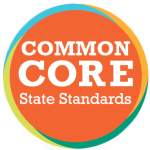 as they pass through each grade level and John Dewey’s Progressivism which is founded on student driven inquiry-based learning. This is more of an innovation-based education philosophy where the student is first taught required information and then he/she is free to further develop that knowledge through the four Cs’ of critical thinking, collaboration, communication and creativity.
as they pass through each grade level and John Dewey’s Progressivism which is founded on student driven inquiry-based learning. This is more of an innovation-based education philosophy where the student is first taught required information and then he/she is free to further develop that knowledge through the four Cs’ of critical thinking, collaboration, communication and creativity.
The common core state standards (CCSS) evolved out of the 1983 “A Nation at Risk” government report commissioned by the Reagan administration that was a scathing appraisal of public education. Of the reports five recommendations – improving content, raising standards, overhauling the teaching profession, adding time to the school day and year, and improving leadership and fiscal support – raising standards lead to the development of the common core, a set of streamlined but intense new standards introduced in 2009 that, though controversial, are still in use in more than 40 states.
Habit of the Mind
The big change for students is what is called “Habits of the Mind.” It’s the universality of how we think as humans. It’s subtle; it’s design-based thinking…the same thinking engineers use to solve problems. Educators are now being asked to solve problems in a similar way. The central question is: How do students’ best learn in the 21st century?
In English Language Arts (ELA) students are required to “Demonstrate independence,” “Comprehend as well as critique” and “Come to understand other perspectives and cultures;” In math it’s “Make sense of problems and persevere in solving them,” “Attend to precision,” and “Look for and express regularity in repeated reasoning;” and with NGSS in Math; and with Next Generation Science it’s “Ask questions (science) and define problems (engineering),” “Use mathematics and computational thinking,” and “Obtain, evaluate and communicate information.” The complexities of educating students in the 21st Century are said to center around balancing content instruction with developing deep thinking processes.
Knowledge of Most Worth
So these are the new requirements for teaching and learning with the CCSS but what about content.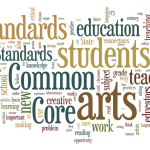 What exactly should be taught? This brings us to the question of “what knowledge is of greatest worth” in such a time of flux and change. This question has been asked as far back as Greek society and Herbert Spencer made this question famous in his 1859 essay.
What exactly should be taught? This brings us to the question of “what knowledge is of greatest worth” in such a time of flux and change. This question has been asked as far back as Greek society and Herbert Spencer made this question famous in his 1859 essay.
Socrates and Isocrates were contemporary Athenian teachers. Isocrates taught the arts of rhetoric and oratory as well as other subjects related to success in political life while Socrates also taught Rhetoric but spent much of his time on the question of whether “there was a special art and technique of teaching virtue that could make life truly worthwhile. Socrates himself could not convince a jury of Athenians that in criticizing the success route of the day he was not corrupting the youth of Athens.”(Broudy, 1981)
The Socrates-Isocrates split is repeated in every era. The schooling the dominate group in society judges to be needed for success automatically becomes the criterion of “quality” education; that is, the knowledge most worth. (Broudy, 1981) It seems that today the type of knowledge that is the most prized is that knowledge that can generate the most wealth. It is the “how to” knowledge. Yet, as in every era, the tendency of schools to become oriented to the success route of the day – or the vocation market – is questioned by Socratic surrogates. They advise that premature restriction of schooling to the skills of this or that trade or profession is inadvisable on both scholastic and economic ground. They believe that if the pupil does not acquire proficiency in the more generalized fields while in school, it will be difficult to acquire it elsewhere (Broudy, 1981).
Today we hear a lot about the need to prepare students for working in the global economy and that this demands teaching 21st century skills. The call for 21st Century knowledge “framework” rests on the assentation that education has failed to prepare students for the demands of the 21st century. Schooling (in terms of organization, structure, and format) remains the same today as it was throughout the 21st century. Reform educators such as Howard Garner and “The Partnership for 21st Century Skill” argue that “it has become increasingly evident that the labor force required by and increasingly globalized economy requires an altogether different model of education – one that transcends the 20th century skills of repetition, basic applied knowledge, and limited literacy.” (Kareluik, et al, 2013)
this demands teaching 21st century skills. The call for 21st Century knowledge “framework” rests on the assentation that education has failed to prepare students for the demands of the 21st century. Schooling (in terms of organization, structure, and format) remains the same today as it was throughout the 21st century. Reform educators such as Howard Garner and “The Partnership for 21st Century Skill” argue that “it has become increasingly evident that the labor force required by and increasingly globalized economy requires an altogether different model of education – one that transcends the 20th century skills of repetition, basic applied knowledge, and limited literacy.” (Kareluik, et al, 2013)
In their analysis Kareluik, et al, identified three broad knowledge categories (and three subcategories within each) needed for a 21st century education. These categories are “Foundation Knowledge” (Core Content Knowledge; Digital Literacy; and Cross-Disciplinary Knowledge); “Meta Knowledge” (Problem Solving & Critical Thinking; Communication and Collaboration; and Creativity and Innovation); and “Humanistic Knowledge” (Life/Job Skills/Leadership; Cultural Competence; and Ethical/Emotional Awareness).
In their discussion summary Kareluik, et al, hold that their three realms of knowledge can be seen as what we need to know, how we act on that knowledge and the values that we bring to our knowledge and action. However, they also state, “it is clear that not all knowledge and skills present in 21st century framework are unique and novel to this century.” Diane Ravitch stated, “There is nothing new 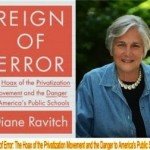 in the proposals of the 21st century skills movement. The same ideas were iterated and reiterated by pedagogues across the twentieth century.” (2009) They state the paradox that “nothing has changed and everything has changed. It means that though the 21st century is different from previous times, it does not mean that our core roles (to know, act and to value) have changed. That being said, even as we hold on to core ideas, we have to continually shift and come up with newer ways of instantiating them.”
in the proposals of the 21st century skills movement. The same ideas were iterated and reiterated by pedagogues across the twentieth century.” (2009) They state the paradox that “nothing has changed and everything has changed. It means that though the 21st century is different from previous times, it does not mean that our core roles (to know, act and to value) have changed. That being said, even as we hold on to core ideas, we have to continually shift and come up with newer ways of instantiating them.”
As far as who should decide the contemporary knowledge of most worth has to be a communal effort one that needs input from anyone with a vested interest which is everyone. However, in the final analysis I would rather it be trained and experienced professional from the various educational disciplines rather than ideologically bound Politians.
Of the subject “knowledge of most worth” Mike Rose says it well, “Think of what it would mean for our civic life (and for life in schools) to affirm the bedrock value of Knowledge – many kinds of knowledge, machinist’s to pediatrician’s – to affirm the wide range of ways people gain and apply knowledge, solve problems, think their way through their daily lives.” (Rose, 2009)
Common Core and Education Philosophy
Since my educational philosophy is that of Bagley’s original concept of Essentialism my vision of instruction would include a combination of Dewey’s and Liv Vygotsky’s as interpreted in Michael Glassman’s paper “Dewey and Vygotsky: Society, Experience, and Inquiry in Educational Practice.” While Glassman acknowledges that Dewey and Vygotsky shared “similar ideas concerning relationship and activity and learning/development, especially the roles everyday activities and social environment play in the educational process” he felt that the relationship between “process and goals” in education were entirely different.
Vygotsky believed that “social organization” was the main element in learning. He sees learning as only one tool in the developmental process in which the “process of learning” allows the child to fulfill their development potential. Accordingly, it is important for teachers/mentors to be a proactive guide to the child’s education using social environments to construct activities that will lead to understanding. Dewey, on the other hand, believed that the child gets educated by creating their own experiences that lead to natural inquiry. What is important is the process and the attitude of the child during that process. The desire to inquire leads to learning. Vygotsky believed in education to create a strong member of society whereas Dewey believed that education should develop the individualistic nature to stand out in society. (Glassman, 2001)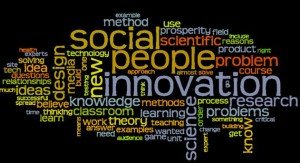
I believe in both education methodologies. I think that the student needs a core set of instruction from which to develop a sense of inquiry. I believe that teachers should be first mentor/instructors and then facilitators of inquiry-based learning. Children want and need parameters to operate in both at home and at school. They need to be exposed to sociologic fact and experience so that can grow their own. For example, in a class like chemistry first students must learn the core element before they can experiment with them; and in literature students need to read before they can critically write about what they experienced in the book. Not to assigning what the student should read would have them wondering in the weeds trying to figure it out.
What counts in learning is open to endless debate but I think the key is “balance.” Student should be given the tools to earning a living but also the tools to live a creative and happy life. The 21st century skill-set is important but so are the social tools to implement them and to be a productive member of a community. Many of the liberal arts contain the elements that are coveted in the science disciplines like, critical thinking, communication, collaboration and creativity. They also allow us to live a richer life filled with insight which allows us to relate to and communicate with a broader section of society than just the associates that we develop in our narrow friendship and work worlds.
Instructional Methodology
The instruction should be a combination of drills/standards/assessments complimented with project/inquiry based learning. Creative inclusionary teaching methods would be used like in Susan Ohanian’s article “On Stir-and-Serve Recipes for Teaching” were she used science to embed a reading class; and innovative curriculum would be used to teach cross-disciplinary knowledge as highlighted by Steven Wolk in “Why Go To School” enacting cultural understanding in social studies and global awareness through young adult literature.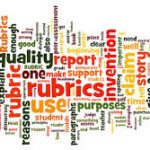
Although they would accomplish the same thing the term “High-Stakes Testing” should be eliminated and replaced with “Accomplishment Tests.” They should be given through-out the course the concept of which can be described by the old adage “How do you eat and elephant? – one bite at a time.” For the liberal arts courses rubrics would be developed to assess students work. At the end of each course an “Innovation-based learning” model would be used to teach how failure should not be feared as it too can be a tool of learning. The students would be given an advance subject test that they would fail but it wouldn’t count on their evaluation. From that failure the students would use the questions as learning tools and then, from what they learned, use their imaginations to rewrite the questions.
References Articles
- Joel Spring, American Education, Fifteenth Edition (New York: McGraw-Hill, 2012), pp. 3, 4, 9, 29.
- J. Westley Null, William C. Bagley and the Founding of Essentialism: An Untold Story in American Education History, (Teahers College Record, Volume 109, Number 4, April 2007, pp.1013-1055) pp. 1014-15, 1042,
- Mike Rose, Why School?, (New York: The New Press, 2009), pp. 25,
- Kristen Kereluik, Punya Mishra, Chris Fahnoe, Laura Terry, What knowledge is of Most Worth: Teacher knowledge for 21st Century Learning, (Journal of Digital Learning in Teacher Education, vol.29, no. 4, 2013, pp. 127-133
- Harry S. Broudy, What Knowledge is of Most Worth?, (Educational Leadership, 1981, pp. 574-578
- Michael Glassman, Dewey and Vygotsky: Society, Experience, and Inquiry in Education Practice (Educational Researcher, vol 30, no. 4, 2001,pp.3-14
- Susan Ohanian, On Stir-and-Serve Recipes for Teaching (unknown)
- Steven Wolk, Why Go To School (Phi Delta Kappan, 2007, pp.648-658)

Recent Comments